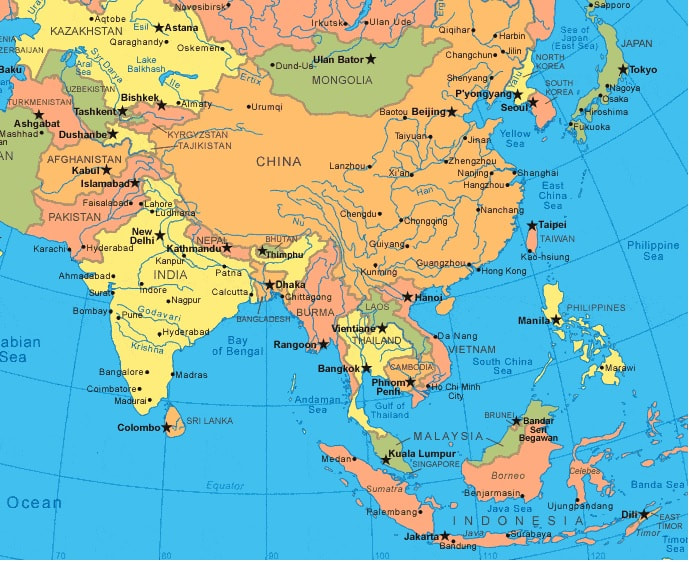|
[This is a review of our last two years and our decision to move to Malaysia.]
Background: In 2019, after our kids were married and supporting themselves, we realized that we did not need the six figures of income we were together earning, but could take our teaching ministry to Asia by raising a (much smaller) income and living simply. How did we decide on Asia? When I was 24 years old, just having gotten back from Urbana 84, sharing in a small group, I was answering the question, "Why aren't you planning to be an overseas missionary?" My response at the time was "I want to be in student ministry in the US when I am young, because in student ministry youth and energy is valued. When I get older I want to go to Asia, where age and wisdom are valued." It wasn't a cop out at the time--I had taken a seminary course on the church in China and had long thought about ministry in Asia, but it didn't seem to be the right time. Three years ago, when we began looking for places to go, our son was living in Hong Kong, and our daughter had just moved to Durham NC, where her husband was in school at Duke. No one lived in California, or seemed likely to do again soon. So we explored theological teaching opportunities in Asia. Lisa went to the Asian Theological Association in Singapore in 2019, where she kept meeting Malaysians, often people who had studied at Fuller Seminary and knew people she knew. Several of them suggested that Malaysia would be an easy place in Asia to come, where the teaching language is English and she could be effective right away. By early 2020, she had an invitation to join the faculty of St. Paul's Theological College. LIsa had been teaching preaching courses at Fuller since she completed her PhD in 2008, including lots of teaching in an on-line format. So when COVID delayed our entry into Malaysia, we both started receiving invitations to teach courses. What is your vision? The vision that unites our work, Lisa's theology and homiletics teaching and my Bible studies on leadership and discipleship, is bringing leadership development and resources to emerging leaders in Asia, where the church is growing and in need of more leaders, but especially where the number of resources falls behind the need and the opportunity. Malaysia is a key place because it has populations of both ethnic Chinese believers and ethnic Indian believers, and the church is young and growing there. We are resourcing people who want to grow in their faith and who, in the course of their theological education, are given a vision for and a calling to ministry, whether in the workplace or in the church. We also have a vision, for example, to serve rural church planters who wouldn't have funds to pay for seminary in Singapore or even Malaysia or Bangalore, but could go to a Bible college in the state of Tamil Nadu where they receive three years of training even if they haven't completed a high school diploma. These are the kinds of students being touched by our ministry. Lisa has been invited to join the community of scholars who are helping to prepare a group of Malaysian PhD candidates for theological education. She has done this as well for India and Nepal, helping to read dissertations, serve on doctoral committees, etc. I don't have the formal theological education, but I will be beginning a DMin degree in Penang, Malaysia, taking courses led by Asian faculty, focusing on ministry development in Asia. My dissertation research will focus on the challenges of bringing inductive teaching in an Asian (Chinese and Indian) church context. This I feel will both be fueled by my own experience but will help to sharpen and extend it. How has the pandemic affected your ministry? While doors were closing to in-person ministry in Malaysia, they were opening up via technology, through Zoom teaching on-line. In the past two years Lisa and I have taught more than 20 courses at seminaries and Bible colleges in Malaysia (3), the Philippines (1), Nepal (2), India (3), Sri Lanka (1). Beyond that, I have begun teaching non-formal classes to church planters and leaders in India, with my partners translating my teaching into Hindi, Oriya, Tamil and Urdu. I have developed leadership Bible studies called Sketches of Leadership. Now there are about 150 different Sketches of Leadership, including many that have been translated into these different languages. I use these Sketches in my formal classes and in the non-formal trainings, and am currently on pace to teach between 500 and 600 Bible studies per year (10-15 per week), usually though not always one of these Sketches. The sketches are translated so that the leaders I am training can turn around and use them with the people they are training, and that is starting to happen. One of the purposes of our trip to India this summer is to extend that ministry and to deepen its impact.
0 Comments
Leave a Reply. |
Archives
April 2024
AuthorRich and Lisa Lamb Categories |

 RSS Feed
RSS Feed